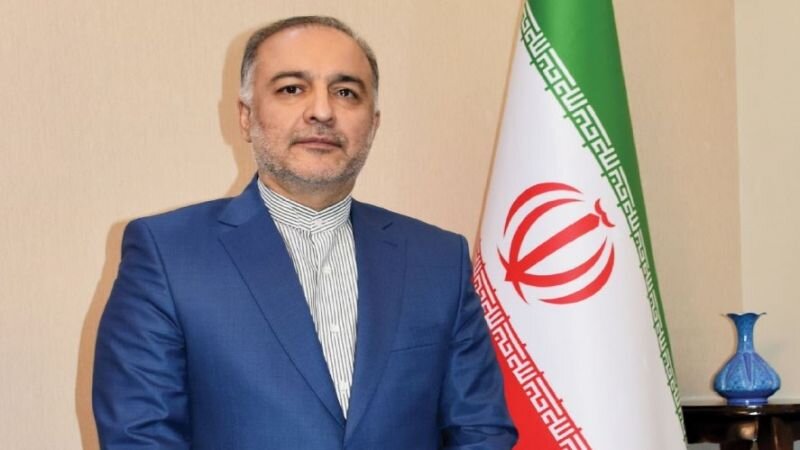Iran-Syria cooperation continues at highest level: ambassador

TEHRAN – Iranian Ambassador to Syria Mehdi Sobhani has spoken about the strategic relationship that has brought Iran together with Syria since the victory of the Islamic revolution in Iran, pointing to the mutual support that the two countries have provided to each other at different stages of the life of this relationship, and the economic war they are fighting with courage against Washington's sanctions.
In an interview with Al Ahed News, Sobhani underlined that the U.S. policy toward Syria has not changed, even if its tactics have changed. With regard to Iranian oil tankers that arrived in Lebanon via Syrian territory, Sobhani pointed out that this confirms the ability of the resistance axis to implement its promises, while proving the inability of the other axis.
“In the science of international relations and schools of thought, there is a prevailing belief that what determines the direction of the foreign policy of each country is its own identity in international relations, and the more convergence between countries in their identities, the stronger they will have a desire to cooperate with each other,” the ambassador told the Lebanese news website.
Sobhani pointed out that the victory of the Islamic revolution in Iran brought about a fundamental change in the identity of Iran before the revolution and after the revolution. “It established new values, goals and norms for an identity in the Islamic Republic of Iran. This new identity defined the international national role of the Islamic Republic of Iran and became the basis for its behavior at the international level. This new identity was reflected in the articles of the Iranian constitution, especially with regard to the foreign policy of the Islamic Republic of Iran, from fighting injustice and rejecting arrogance to supporting liberation movements and the oppressed,” he said.
The Iranian ambassador noted that these developments took place in Iran at a time when the West Asia region was witnessing a movement of normalization with the Zionist entity [Israel], especially in light of the Camp David Accords, where many countries that once was enemy of this entity turned towards normalization with it.
According to Sobhani, the only country that did not give up confronting the Zionist entity and remained in the front line to confront this entity was Syria led by the late President Hafez al-Assad. “Accordingly, the new identity of the Islamic Republic of Iran and the identity on which the Syrian Arab Republic remained, defined the common enemy and common interests between the two countries. The late President Hafez al-Assad and Imam Khomeini can be considered the main founders of these strategic relations between the two countries, through a shared identity, which in turn paved the way for rapprochement during the past decades over forty years. We saw the fruits of these relations in the sensitive historical junctures that the two countries went through, when the Syrian Arab Republic stood by Iran in the days when it was in need of support, as well as when the Islamic Republic of Iran stood by Syria in its fight against terrorism,” Sobhani added.
The Iranian ambassador talked to Al-Ahed News about the second point that helped strengthen these relations and their stability, which was the good intentions of the two countries and their mutual trust. He said thanks to these correct pillars, the relations between the two countries are witnessing a continuous development, and are strategic in the political, economic, commercial and cultural, scientific, and educational fields.
Sobani pointed out that “the strategic relations between Iran and Syria include all fields, including military cooperation, which represents support for Syria, and reflects a strengthening of relations between the two countries in general.” He further noted that “interaction in international relations has several levels, including cooperation, partnership, alliance and unity, and we are allies, in the sense that we have passed the first stages and the first levels, and since the two countries are allies of each other, we are developing relations between us in proportion to the level of these relations.”
Sobhani reiterated that “the level of our cooperation with Syria has reached the highest level, and there is a military cooperation agreement between the two countries. The agreement covers all areas of cooperation and is applied and implemented as required.”
According to the ambassador, Syria has passed the main stage of the field war against it without changing its strategy. “The enemy’s strategy was to defeat the Syrian state, toppling it and dividing the country,” he affirmed.
And this, according to Sobhani, is the strategy of some arrogant countries, not only against Syria, but against a number of other large Islamic countries. “In their quest to divide Syria, they imagined that they would be able to create mini-states affiliated with them in terms of security and unable to direct any threat against them and the Zionist entity. The enemy's strategy has not changed yet, but it has changed its tactics to implement this agreement,” Sobhani noted.
